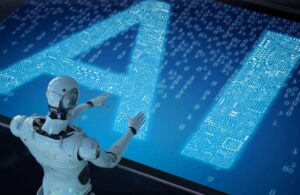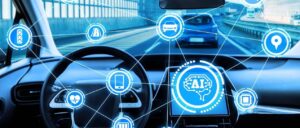Discover the Benefits of AI-Powered Innovation
AI-powered innovations are transforming industries worldwide at an unprecedented rate.
Imagine an agricultural entrepreneur once bogged down by manual labour, now reaping bountiful harvests with the assistance of AI-driven machinery.
These cutting-edge advancements not only boost productivity and efficiency but also unlock new opportunities for growth, making AI-powered technology a game-changer in the modern landscape.
Industries as varied as healthcare, finance and transportation are experiencing profound transformations.
Embrace the change.
Understanding AI-Powered Innovation
AI-powered innovation encapsulates the seamless integration of artificial intelligence across various industry sectors. By harnessing AI’s potential, we can break through traditional limitations and discover newfound efficiencies.
This transformative wave of technology is reshaping the way we solve problems.
Innovations such as predictive analytics, machine learning algorithms, and autonomous systems exemplify the unique advantages AI can offer across diverse fields, promoting swift decision-making and precision.
The transformative power of AI is not merely about automating tasks; it’s about creating intelligent systems that learn and improve. As more businesses adopt AI-powered solutions, they differentiate themselves through enhanced capabilities, leading to unprecedented growth and a brighter future for all.
How AI is Revolutionising Industries
AI is a game-changer.
Countless industries have felt the thrilling impact. The healthcare sector, for instance, has witnessed extraordinary advancements in diagnosis accuracy, thanks to AI’s sophisticated capabilities. Similarly, in finance,
AI-powered solutions offer precise risk assessments and fraud detection, bringing a new horizon of security. Transportation has seen enhancements in safety and efficiency with autonomous vehicles leading the innovation charge.
Such profound shifts herald new paradigms.
Consider the acceleration of supply chain processes – no longer a distant hope but a tangible reality powered by AI.
Predictive maintenance and real-time analytics facilitate the seamless operation of industries.
As we look ahead, AI’s boundless potential continues to unfold, promising a tapestry woven with revolutionary changes. Each industry can leverage AI-powered innovations as keystones to unlock immeasurable value, fostering growth, efficiency, and a brighter future for all.
Enhancing Efficiency with AI-Powered Tools
Embracing AI-powered tools is not merely an option; it’s an evolving necessity in the modern business landscape, channeling a new era of productivity and precision.
AI’s remarkable ability to process vast datasets rapidly reduces human error and accelerates decision-making.
Moreover, automated workflows, enabled by AI-powered platforms, ensure consistency and save valuable time for professionals.
Routine tasks are seamlessly managed, freeing up human talent to focus on more complex and creative endeavours.
These tools offer unparalleled insights and predictions, paving the way for informed strategies, optimising resource allocation, and driving continuous improvement across functions.
Ultimately, the quest for efficiency finds its champion in AI-powered innovations, transforming the way we work, compete and lead.
AI in Healthcare: Transforming Patient Care
AI-powered technologies are revolutionising the healthcare landscape by enhancing diagnostic accuracy and personalising treatment plans. By harnessing data, AI systems can identify patterns, predict disease outbreaks, and offer early intervention, significantly improving patient outcomes.
This technological renaissance empowers healthcare professionals to deliver superior care, ensuring faster, more accurate, and efficient health services.
Predictive Analytics for Better Diagnosis
AI-powered predictive analytics are making extraordinary strides in the medical field, specifically in enhancing diagnostic processes for healthcare professionals.
Predictive analytics can reduce diagnostic errors by up to 30%, improving patient care and outcomes.
Harnessing vast datasets, these AI-driven systems analyse patient information to foretell potential health issues before they become critical. This foresight enables medical practitioners to implement preventive measures, reducing long-term healthcare costs.
The precision of predictive analytics allows for early detection of diseases such as cancer and diabetes. By identifying high-risk patients, it fosters timely interventions, substantially elevating survival rates and improving quality of life.
AI-Driven Personalised Treatment Plans
The advent of AI-powered tools has revolutionised personalised medicine, transforming patient care with unprecedented finesse.
By leveraging AI, healthcare professionals can craft bespoke treatment plans tailored to individual patients, taking into account their unique genetic makeup, lifestyle choices, and medical history. This meticulous approach not only enhances the efficacy of treatment but also maximises patient safety by minimising adverse reactions.
Moreover, these adaptive plans dynamically evolve with real-time data analytics. As new information becomes available,
AI algorithms adjust treatment protocols, ensuring the patient receives the most relevant and effective care, thereby mitigating the risk of potential relapses or complications.
Overall, AI-driven personalised treatment plans epitomise the future of bespoke healthcare. They represent a transformative shift towards precision medicine, where the right treatment is delivered at the right time, to the right patient.
This paradigm not only optimises patient outcomes but also heralds a new era of cost-efficiency in medical treatment, ultimately revolutionising the landscape of modern healthcare.
AI in Finance: Boosting Accuracy and Security
AI-powered advancements considerably augment accuracy and security in financial sectors, driving unparalleled growth and innovation.
In finance, these technologies deploy sophisticated algorithms (e.g., machine learning) to detect and rectify anomalies, which aids in safeguarding transactions and preventing fraudulent activities.
The terms “AI-powered” and “AI-driven” have become synonymous with the ‘gold standard’.
Automated Fraud Detection
The integration of AI-powered solutions significantly enhances fraud detection mechanisms.
By leveraging advanced machine learning algorithms, these systems can identify suspicious patterns and anomalies in real-time.
This immediate response minimises the potential for fraudulent activities to escalate.
Additionally, AI-powered detection tools learn from historical data, adapting to emerging threats and constantly improving their accuracy. This dynamic capacity ensures that the financial institutions stay one step ahead of fraudsters.
Automated fraud detection thereby solidifies trust among customers, investors, and stakeholders, by proactively safeguarding financial transactions and data.
This increased confidence feeds directly into the overall health and growth of the financial sector.
In essence, AI-powered fraud detection is not only about security but also about fostering an environment where innovation and trust can flourish hand in hand.
Enhancing Investment Strategies
The transformative potential of AI-powered technologies in refining investment strategies is unparalleled, driving unprecedented accuracy and efficiency.
- Data Analysis: AI processes vast datasets to reveal insightful patterns.
- Predictive Analytics: Machine learning models forecast market trends with remarkable precision.
- Risk Management: AI assesses and minimises risks through sophisticated simulations.
- Personalisation: Algorithms tailor strategies to individual investor profiles.
Adopting AI-powered tools empowers investors to make well-informed, dynamic decisions.
This augmented approach not only boosts returns but also fosters sustainable, data-driven growth in the investment landscape.
AI in Manufacturing: Optimising Production Processes
AI-powered advancements in manufacturing are revolutionising production processes, ushering in an era of unprecedented efficiency.
Machine learning algorithms analyse vast amounts of production data, identifying patterns and optimising workflows.
This sophisticated technology minimises downtime, reduces waste, and enhances quality control, ensuring a seamless production pipeline. Integrating AI into manufacturing not only bolsters productivity but also paves the way for innovative and sustainable industrial practices.
Predictive Maintenance with AI
Predictive maintenance powered by AI is revolutionising equipment management and maintenance strategies.
- Reduced Downtime: Proactively addressing issues before they cause equipment failure.
- Cost Efficiency: Minimising maintenance costs by only performing necessary upkeep.
- Enhanced Safety: Preventing accidents through timely detection of potential hazards.
- Extended Equipment Lifespan: Ensuring machinery operates at peak performance for longer.
- Data-Driven Insights: Leveraging large datasets to refine maintenance schedules.
Implementing AI-powered predictive maintenance strategies greatly enhances operational efficiency.
This innovative approach transforms maintenance into a proactive rather than reactive process.
Streamlining Supply Chain Management
AI-powered tools dramatically simplify supply chain management.
Expediting the identification and rectification of bottlenecks, AI technologies refine the entire logistic process.
By utilising real-time data and advanced analytics, organisations are better equipped to foresee issues before they escalate.
Consequently, this not only enhances efficiency but also mitigates risks associated with supply chain disruptions.
Seamless integration optimises stock control.
AI-driven solutions reduce the necessity for maintaining large safety stock, as predictive models forecast demand with pinpoint accuracy.
This culminates in a harmonised, cost-effective supply chain that is responsive to market dynamics.
Moreover, companies leveraging AI-powered insights can create adaptive strategies that ensure resilience and flexibility.
This continuous innovation translates into significant competitive advantages and positions businesses at the forefront of modern supply chain management.
AI in Retail: Enhancing Customer Experiences
AI-powered algorithms revolutionise retail operations, facilitating an unprecedented personalisation of the shopping journey.
Leveraging vast pools of data, retailers can now anticipate customer needs, delivering tailored recommendations in real-time.
This superior level of service not only cultivates customer loyalty but also drives sales, setting new benchmarks for consumer satisfaction. Retail environments infused with AI innovations are synonymous with agility and adaptability, consistently exceeding customer expectations and heralding a new era of bespoke retail experiences.
Personalised Shopping Recommendations
AI-powered personalisation is transforming retail.
Harnessing the power of AI, retailers curate unique experiences. Every time a customer interacts with a platform, AI analyses browsing patterns and purchase history to provide bespoke recommendations.
Consequently, consumers find exactly what they’re looking for without the hassle, compelling them to return time and again.
Such precision optimises both convenience and satisfaction.
Imagine discovering items you didn’t know you needed – all from the comfort of home.
This seamless blend of machine precision and human preference exemplifies modern, AI-powered shopping.
Embracing these innovations enables businesses to stay ahead, continuously refining their offerings in alignment with ever-evolving consumer dynamics, translating insight into meaningful engagement.
Improving Inventory Management
AI-powered technologies can revolutionise inventory management, delivering precision and efficiency.
Traditionally, managing inventory has required significant time and resources. The introduction of AI-powered systems changes this dramatically, using data to predict demand, streamline operations, and reduce overhead costs.
In 2016, IBM’s Watson, an AI cognitive computing system, successfully trialled a program that enabled real-time inventory management, highlighting the immense potential of AI in optimising these processes.
Today, it’s not just large chains that benefit; mid-sized businesses too can leverage the accuracy of AI-driven forecasting to maintain an optimised inventory, minimising waste and maximising efficiency.
Efficient inventory ensures businesses can meet consumer demand seamlessly, fostering higher customer satisfaction and loyalty.
The Role of AI in Enhancing Cybersecurity
The integration of AI in cybersecurity has transformed the traditional paradigms of protecting digital assets, enabling advanced, real-time threat detection, response, and mitigation.
AI-powered systems can continuously learn and adapt, effectively countering sophisticated cyber threats.
By leveraging machine learning algorithms and big data analytics, AI enhances the ability to foresee potential attacks and vulnerabilities, ensuring a proactive defence.
Embracing AI-powered cybersecurity solutions instils confidence by safeguarding sensitive information.
Identifying Threats with AI Algorithms
In an era where digital security is paramount, identifying threats with AI algorithms is revolutionary. AI-powered solutions swiftly analyse vast datasets, identifying anomalies and predicting potential vulnerabilities.
These advanced algorithms work tirelessly, ensuring threats are identified promptly.
AI-driven systems harness machine learning to enhance their accuracy continually. They predict and mitigate risks through constant adaptation.
By implementing AI-powered threat detection, organisations can stay a step ahead of potential cyber-attacks.
This proactive approach ensures a fortified defence, fostering a secure digital environment that adapts intelligently to emerging threats.
Automating Incident Response
In the dynamic landscape of cybersecurity, automating incident response is pivotal. It ensures swift, precise actions when threats arise, mitigating damage and ensuring continuous operations.
Automated response systems react faster than human analysts.
Consequently, incidents are contained and resolved before escalation, minimising risks.
Automation leverages AI-powered technologies to identify, analyse, and rectify threats in real-time.
Furthermore, these systems enhance efficiency by reducing manual intervention, freeing up resources for other critical tasks.
Incorporating AI-powered automation into incident response protocols ensures organisations are well-equipped to tackle evolving cyber threats.
It exemplifies a forward-thinking approach, instilling confidence in an increasingly digital world.
The Future of AI-Powered Innovation
AI-powered innovation is set to revolutionise multiple industries. It will dramatically transform the way we live, work, and interact.
In 2022, healthcare and finance sectors saw significant advancements, driven by AI-powered technologies, promising transformative solutions.
This heralds a future where AI becomes integral to economic and societal progress.
Currently, it is not just about automating tasks but enhancing human capabilities.
AI-powered systems will enable more intelligent decision-making, maximising efficiency and innovation across diverse fields.
Imagine a world where AI predicts market trends, personalises medical treatments, and resolves customer service queries with unparalleled accuracy. Such a future exemplifies the incredible potential of AI-powered innovation.
The journey towards this future is an inspiring testament to human ingenuity and technological progress. The possibilities are boundless.
Ethical Considerations in AI Development
Engaging with AI-enabled innovation necessitates thorough ethical deliberations, encompassing a myriad of aspects such as fairness, transparency, and the potential implications of biased algorithms.
Consider the importance of equitable AI deployment.
Foremost, ensuring fairness mandates rigorous scrutiny to eliminate embedded biases.
Transparent AI systems foster trust and accountability, enabling better stakeholder understanding.
Responsible AI usage also includes safeguarding privacy and securing data, imperative in an evolving digital landscape.
The collaboration of multi-disciplinary teams is vital to navigating these ethical intricacies, ensuring AI advancements align with societal values.
Ultimately, addressing ethical considerations builds a robust foundation for the sustainable and beneficial integration of AI-powered solutions.




















